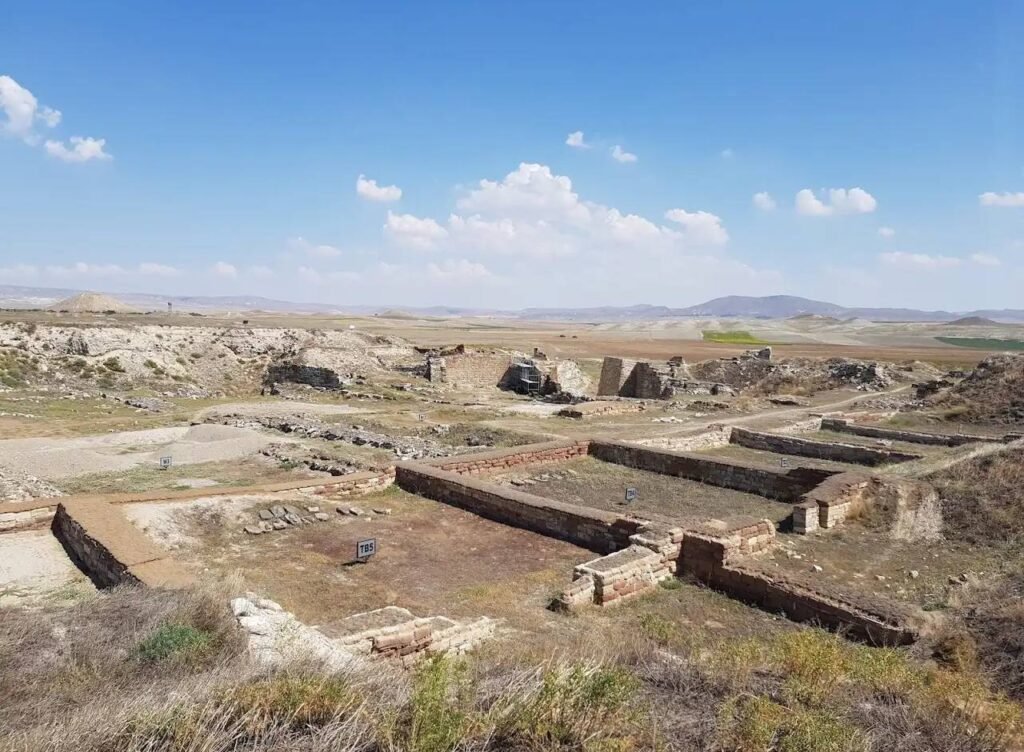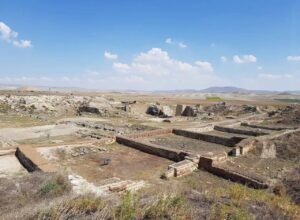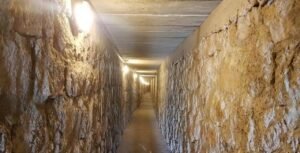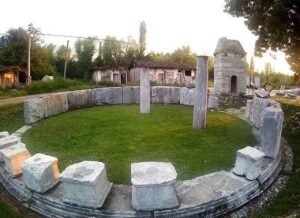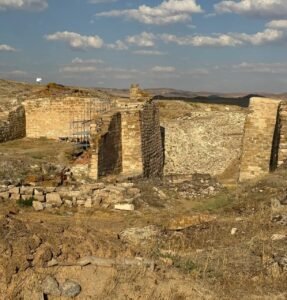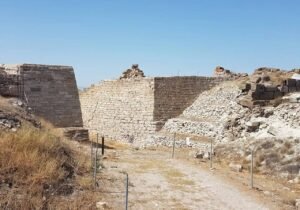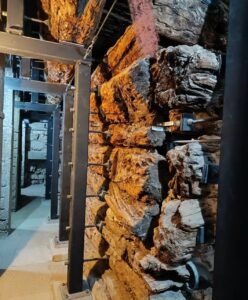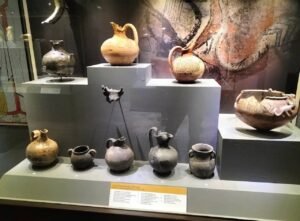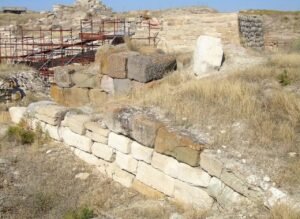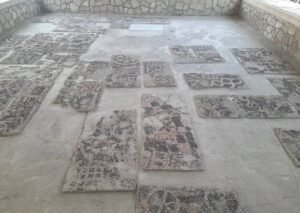Description
Discover Gordion: The Ancient City of Legends near Ankara, Turkey
Nestled in the heart of Central Anatolia, about 80 kilometers southwest of Ankara, lies one of Turkey’s most historically rich and captivating archaeological sites — Gordion Ancient City. Known as the capital of the ancient Phrygian Kingdom and forever linked to legends such as the Gordian Knot and King Midas, Gordion offers travelers a fascinating journey through millennia of history, myth, and culture.
A City of Kings and Myths
Gordion’s fame reaches far beyond Turkey’s borders due to its deep association with Phrygia's most famous ruler, King Midas, the legendary king who, according to Greek mythology, turned everything he touched into gold. Archaeological evidence suggests Gordion was inhabited as early as the Early Bronze Age (around 2500 BCE), but it rose to prominence during the 8th century BCE when it became the flourishing capital of the Phrygian Empire.
Perhaps the most famous story tied to Gordion is the legend of the Gordian Knot. As the myth goes, an oracle once foretold that the one who could untie the intricate knot tied to an ancient wagon in Gordion would go on to rule all of Asia. Many tried and failed until Alexander the Great arrived in 333 BCE. Facing the stubborn knot, Alexander sliced through it with his sword, thus "solving" the problem in his own bold way and fulfilling the prophecy in the eyes of his followers.
The Archaeological Marvels of Gordion
Today, visitors to Gordion can walk amidst the remnants of a civilization that once commanded great respect across Anatolia. Excavations have revealed multiple layers of settlement, from the early Bronze Age to Roman and Byzantine times, making Gordion a palimpsest of human history.
The most striking features of Gordion are the numerous burial mounds, or tumuli, that dot the landscape. These mounds were constructed to honor Phrygian kings and nobles. Among them, the Great Tumulus stands out as the largest, towering over 50 meters high with a diameter of 300 meters. Believed to be the burial place of King Midas himself, the Great Tumulus dates to around 740 BCE.
A tunnel leads visitors into the heart of the mound, where an incredibly well-preserved wooden tomb chamber was discovered — one of the oldest standing wooden structures in the world. Inside, archaeologists found rich burial goods: wooden furniture, bronze vessels, and textiles, offering an intimate glimpse into the wealth and craftsmanship of the Phrygian elite.
The Gordion Museum
Adjacent to the ancient city site is the Gordion Museum, a small but impressive institution that houses artifacts recovered from the excavations. Here, visitors can admire Phrygian pottery, jewelry, and inscriptions, along with detailed explanations of the site's history. The museum does an excellent job contextualizing the finds, helping tourists appreciate the complex cultural and political life that once animated Gordion.
Particularly noteworthy are the beautifully intricate wooden furniture pieces from the Great Tumulus, including a magnificently carved table and a throne-like chair, testament to the Phrygians' extraordinary woodworking skills.
Exploring the Ruins
Beyond the tumuli, Gordion’s ancient settlement area offers visitors a chance to walk through the ruins of a once-thriving city. Highlights include the remains of the fortifications, with impressively thick stone walls and monumental gates that hint at Gordion's strategic importance.
The citadel mound reveals traces of residential buildings, public structures, and workshops. Archaeologists have uncovered storerooms packed with ancient vessels, suggesting a highly organized economy and society. Walking among these ruins, with the expansive Anatolian plains stretching in every direction, evokes a deep sense of connection to the past.
In recent years, parts of the site have been made more visitor-friendly, with pathways and interpretative signs that guide exploration and deepen the experience.
Seasonal Beauty and Cultural Events
Gordion is a destination that offers different charms throughout the year. In spring and early summer, the surrounding fields bloom with wildflowers, creating a stunning backdrop for the ancient ruins. The clear skies and mild temperatures make it an ideal time for photography and leisurely exploration.
Occasionally, cultural festivals and academic conferences are held in nearby Polatlı, celebrating the site’s historical significance with exhibitions, lectures, and performances inspired by Phrygian music and art.
Getting to Gordion
Reaching Gordion is relatively straightforward. From Ankara, travelers can rent a car or take a bus to the nearby town of Polatlı, which is about 10 kilometers from the archaeological site. Some guided tours from Ankara also include Gordion as part of their itinerary, often combined with other nearby attractions.
Once in Polatlı, taxis or local minibuses can take visitors directly to the entrance of the Gordion site and museum. It’s a good idea to allocate at least half a day for a relaxed visit, although history enthusiasts may find themselves wanting to linger longer.
Tips for Visitors
- Wear comfortable shoes: Much of the terrain is uneven, especially when exploring the ancient ruins.
- Bring water and sun protection: The Anatolian sun can be strong, especially in the summer months.
- Combine with local attractions: Polatlı offers traditional Turkish hospitality and cuisine; a lunch stop in town can add to the experience.
- Check museum hours: Like many smaller museums, Gordion Museum has specific opening and closing times, and it’s worth confirming these before visiting.
Why Gordion Should Be on Your Travel List
While Turkey boasts world-famous sites like Ephesus, Troy, and Cappadocia, Gordion remains a somewhat under-the-radar gem, making it perfect for travelers seeking an authentic and unhurried historical experience. It’s a place where myth and history intertwine seamlessly, offering insights not just into the ancient Phrygians, but into the broader tapestry of Anatolian civilizations.
If you are passionate about archaeology, fascinated by ancient legends, or simply love exploring less-traveled paths, Gordion is an unforgettable stop on your journey through Turkey.
Location
-
Yassıhüyük, 06900 Polatlı/Ankara
